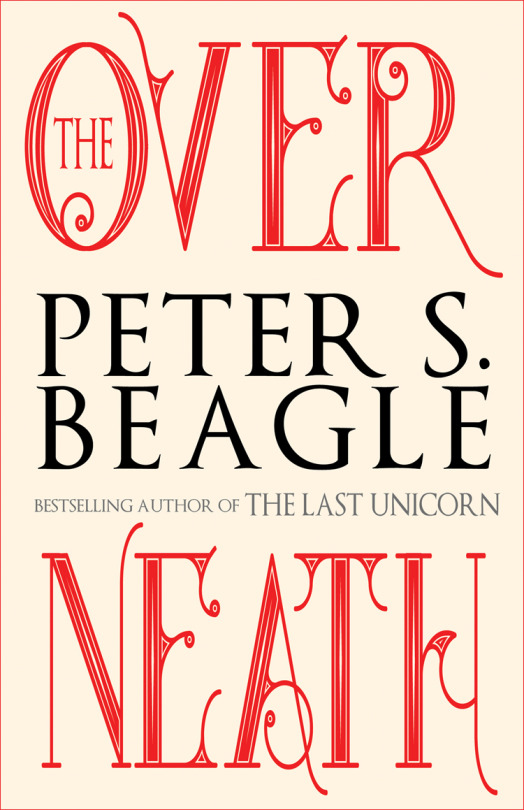THE OVERNEATH by Peter S. Beagle preview: “Music, When Soft Voices Die”
In celebration of the imminent release of Peter S. Beagle’s THE OVERNEATH, Tachyon presents glimpses from some of the volume’s magnificent tales.

Music,
When Soft Voices Die
by Peter S. Beagle
There
were four of them living in the gabled rooming house with two
chimneys on Geraldine Row, on the east side of Russell Square. This
would have been perhaps six years after the Ottoman War, and quite
shortly following the wedding of Queen Victoria’s youngest
daughter, Princess Maude Charlotte Mary, to Prince Selim Ali, who
eventually became Sultan Selim IV. The marriage was not a happy one.
The
four men’s names were Vordran, Scheuch, Griffith, and Angelos. They
were not friends.
Scheuch
and Vordran might have been thought to have something in common,
since Scheuch was a bank clerk, while Vordran, eldest of the four,
worked in a Bishopsgate law firm. But Vordran was not a clerk, nor
ever would be, no more than he would ever be a barrister or a
solicitor. He was merely a copyist and, since he took shorthand, an
occasional secretary. Once, when jolly young Scheuch had the bad form
to invite him to join him for tea, Vordran ticked him off sharply
before the other two, saying coldly, in his slight, unplaceable
accent, “I am a jumped-up office boy, and I will be treated so or
left in peace. Do not ever dare to condescend to me again.” Scheuch
kept his distance from then on.
Angelos
was a second-year medical student at Christ’s Hospital, himself
quite sensible of the fact that names such as his—further, his
mother was Jewish—were rarely admitted to study at the ancient
institution. Even younger than Scheuch, he appeared a much more
serious soul, but on further acquaintance one discovered that his
interests and fancies ranged from pigeon-racing to hot-air ballooning
(very much in vogue since the Turkish bombing of London), to the
newly recognized science of galvanic phrenology, by means of which
one could unfailingly identify a future Mozart or a
mass-murderer-to-be through analyzing the electrical resistance in
different portions of the skull, neck bones, and clavicles. He played
the banjo, but never past eight o’clock, or before ten.
Griffith
had been at Balliol. That was very nearly all one was allowed to know
about Griffith, besides the fact that he was a waiter at
Simpson’s-in-the-Strand. His term at university had apparently been
interrupted by his enlistment in the war, of which he was justifiably
very proud; but why he never returned to Oxford after the Pact of
Trieste remained a mystery. What was not
mysterious about him was the fact that, where Vordran was undeniably
brittle and prickly, Griffith was, quite simply, arrogant to the
point of being unbearable. Everything in his life—and,
consequently, every person as well—was viewed through the prism of
his lost world, and found wanting. He seemed less a proper snob than
a kind of wretched exile, but this understanding made him no more
likable, or even tolerable; the others came to speak to him as little
as they could, except when encountered entering or leaving the house,
or meeting on the stair. Griffith appeared more than satisfied with
this arrangement.
For more info on THE OVERNEATH, visit the Tachyon page.
Cover design by Elizabeth Story
